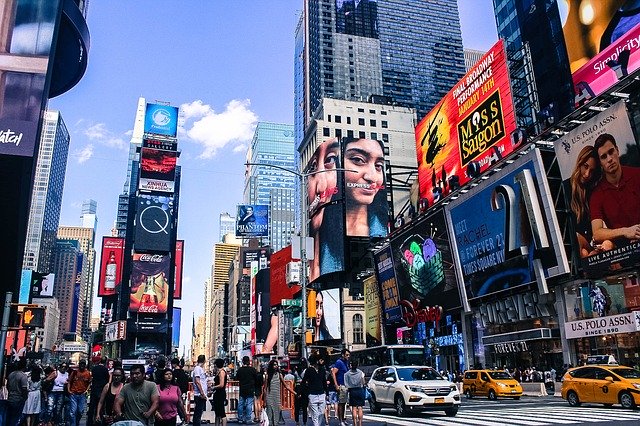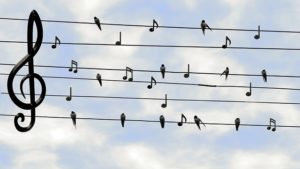
By Miguel Dupree
Read time: 3-4 minutes
“What would you do for $1,000? Of course, the answer depends on what you already have, and what you need.” This quote from 2019’s recession-era heist movie Hustlers has replayed over and over in my head since the dawn of the COVID-19 pandemic. That movie, and the crisis currently paralyzing the globe, are unrelated phenomena on first glance. Something like a Hollywood film is easily dwarfed into ephemeral nothingness by a virus gnawing away at economies, health care systems, supply chains, and Western optimism. The death toll is impossible to wrap your head around. Why am I feeding you a movie quote?
It helps to use a relic from a different time to help us understand the time we are in now. Make no mistake, times are different, perhaps permanently so. The contrast in “normal” from 2019 to 2020 is stark. We stand to learn a lot about our old selves. It was only a few months ago when we were piling into sports arenas and movie theaters. It seems like an eternity ago, doesn’t it?
Underneath the admittedly popcorn-friendly sensibilities, Hustlers sends us a message about what it means to be a victim of other people’s insatiable greed, and the fork in the road one must face as the dust settles. In 2008, the turbulent time depicted in Hustlers, which meant a battered financial system where jobs evaporated, houses were foreclosed upon in droves, and Wall Street had a soft landing.
“What would you do for $1,000?”
Back then, maybe it meant cutting corners. Perhaps it meant working 3 jobs. Maybe it meant taking part in a grift or two. In 2020, we are asking ourselves a different question, albeit one with a very similar premise. What would you do to get back to “normal?” Of course, the answer depends on what was normal for you before, and what you think normal should be now.
I work on the Las Vegas Strip, a place where you are expected to be as frivolous and greedy as you want to be. It is ground zero for what I have deemed a “spiritual shock” afflicting every American. 8 weeks ago, I felt a pit in my stomach as the news alerts on my phone grew more and more alarming. Italy was on the verge of collapse. Spain was right behind. China and South Korea seemed like they had gone through the worst of it already, but no one knew for sure. The “it” in question was a mysterious virus, with an appropriately vague name. It was early March. A week later, Tom Hanks announced he had the virus. The NBA playoffs were canceled. Donald Trump suspended international air travel. All on the same day. At work, I looked around me. People were using the hand sanitizer we provided them but seemed unphased. I knew it would be one of the last times I would see “normal.” By the end of that weekend, I was laid off.
Nature does not think, plan, or hesitate. She just does. American culture, by the same token, operates in much the same way. It stops for nothing, it demands instantaneous results, and it cares little for collateral damage. America, the west, liberal democracy, modern civilization are towering forces that are hard to take down unless Mother Nature is factored into the equation. Fossil fuel use has been threatening our way of life for decades, yet no one is too terribly concerned. Our oceans are warming, plastic is killing fish, forests are being destroyed, and yet our way of life has not changed much at all. How much longer do we have before COVID-19, already defining a decade we only entered into five months ago, seems like a quaint little problem we had to quickly untangle when pitted up against the prospect of Mumbai and Miami getting destroyed by sea-level rise? Or when global warming causes massive crop failures and famine, causing millions of climate refugees to flee their ancestral homes, and civil unrest upends democracy?
What would you do to get back to normal?
COVID-19 is a tragedy beyond anything an American millennial can wrap their head around, and this is a generation that has been defined by tragedy. From 9/11 to weekly school shootings, from the 2008 financial crisis to Donald Trump, we have lurched from letdown to letdown, all while being accused of being shallow, lazy, and spoiled by media gatekeepers. Seen as hapless, we hardly had a chance to move our political system to a place where the health of our planet took priority.
Those days are over. Almost ninety-thousand Americans have died in a matter of weeks, and millennials now must ask themselves how to lead. In all likelihood, we will go down as the generation of simple joys. Our lifestyle is broadly not very glamorous, no matter how many Instagram influencers happen to be millennials. A festival here, a trip to the beach there, a run to a crowded farmers market on Sunday, a cold craft beer at the 70-year-old local bar. We are the generation most primed to meet this moment. Adaptable, tough, skeptical, and industrious, millennials know how to make a new normal for themselves, and our sheer size will steer America to a place where democracy works and nature coexists with us, even when she hits us back with the consequences of our actions.
Getting back to normal means finally making the respect of our planet the nucleus of our politics. If generations before us are too traumatized by the economic whiplash of COVID-19, it makes our leadership all the more obvious. As it turns out, getting back to normal means acknowledging our old ways were never normal in the first place. Perhaps it also means that people born in the 80s and 90s were right all along. Our planet is worth the trouble.
Miguel Dupree is an intern at the League of Conservation Voters.
Join them at https://www.lcv.org



